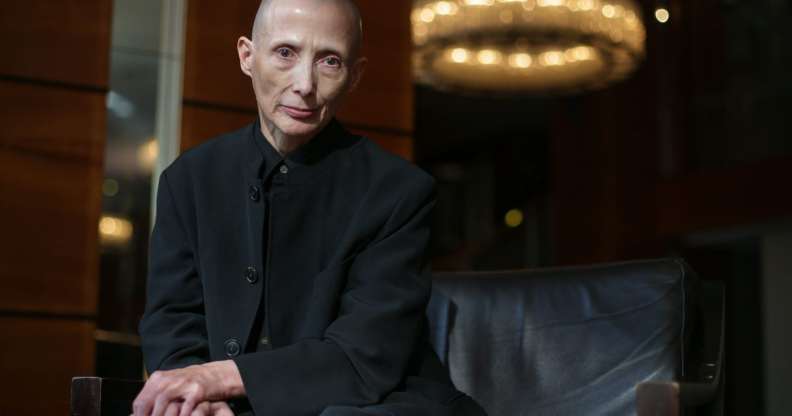Activist takes UK Home Office to court over gender X passports

Christie Elan-Cane. (DANIEL LEAL-OLIVAS/AFP/Getty)
Campaigner Christie Elan-Cane appeared at the Court of Appeal today (December 3) to challenge the Home Office’s refusal to issue gender X passports.
Elan-Cane is a non-gendered activist who has campaigned for a third gender option on British passports for more than 25 years.
They lost a High Court challenge last year, in which they argued that passports should have an X gender marker for all people who do not identify as male or female, calling the current process “inherently discriminatory”.
The Home Office made submissions to the court during the 2018 hearing which said that the case should be dismissed and said the current policy represents an “administratively coherent system for the recognition of gender”.
The issue will now be heard by the Court of Appeal.
According to The Guardian, Elan-Cane’s lawyers will argue that their human rights, under articles 8 and 14 of the European convention on human rights, are being breached by the current policy. Article 8 is the right to private and family life, and article 14 is the right to absence of discrimination.
Australia, Canada, Denmark, Germany, Malta, New Zealand, Pakistan, India, Ireland and Nepal, as well as some US states, already have a third gender option on passports besides male and female.
Elan-Cane and their lawyers will also argue that current law is inconsistent, as people with X gender markers visiting the UK are allowed to enter the country and their passports are considered valid.
Before the hearing, Elan-Cane told reporters: “Legitimate identity is a fundamental human right but non-gendered people are treated as though we have no rights. It is unacceptable that someone who defines as neither male nor female is forced to declare an inappropriate gender in order to obtain a passport.
“The UK government has consistently and consciously shown a determined unwillingness to accommodate non-gendered people’s legitimate needs. We are socially invisible and we are ‘inconvenient’ in a society where so much – even the legislative system – is bound and classified in accordance to gender.
“The government prefers to respond to our situation as though we do not exist rather than work towards enabling our assimilation into gendered society.”
Dr Peter Dunne, senior lecturer at the University of Bristol Law School and expert on law, sexual orientation and gender identity, told PinkNews: “In the initial hearings before the High Court last year, the Government put forward a number of arguments for withholding an ‘X’ passport – including potential fraud, possible threats to personal safety and the risk of creating an incoherent gender recognition system.
“Yet, it is unclear whether these arguments actually stand up to scrutiny.”

